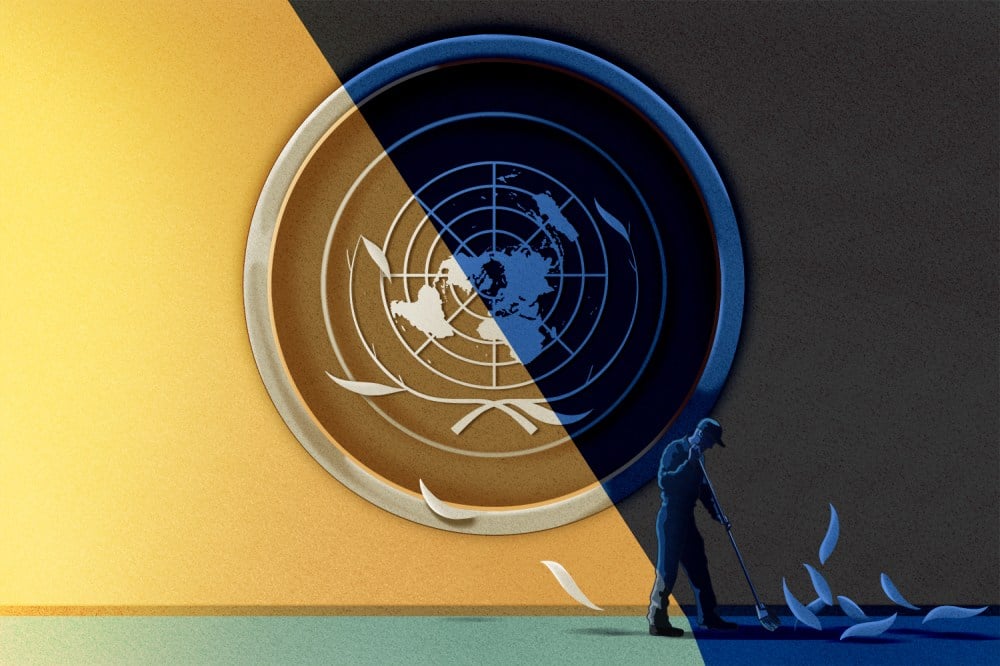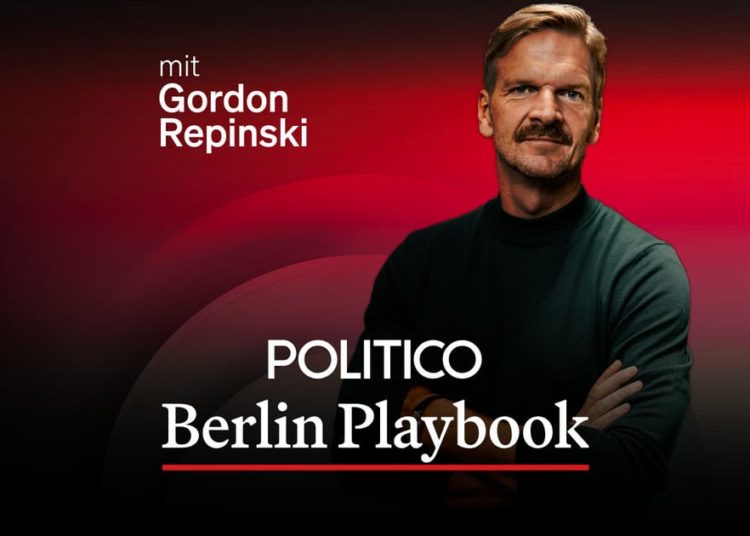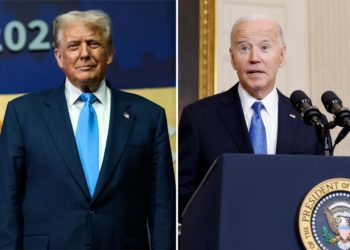Multilateralism matters. As a growing number of issues become increasingly global, international cooperation is simply a must. Nonetheless, the multilateral system established at the end of World War II, with the founding of the United Nations and other organizations, is now unraveling in front of our eyes. This calls for a serious debate about why the system is unraveling, whether it can be saved, and what may replace it if not.
The school of realism in international relations suggests that all institutions are a function of the international power structure. Fundamental shifts in the latter rob the former of its foundation. From now on, realism advises us, we must accustom ourselves to more fragile and suboptimal forms of cross-border cooperation.
Multilateralism defined in its most rudimentary form—as the practice of three or more states coordinating policies—is not dead, of course. Short-term cooperation among groups of states has a long history and will continue to take place. However, the formation of complex multilateral regimes with persistent rules, followed by a wide range of governments to prescribe behavior and constrain state activity, is a much rarer phenomenon. Indeed, the multilateral system and institutions that emerged in the late 1940s are unique in human history. It is this system that is now falling apart.
The multilateralism index compiled by the International Peace Institute showed that the number of states and nongovernmental organizations signing up to the multilateral system continues to grow. But the same index also revealed that the performance of the system as a whole—in terms of how well multilateral institutions can implement policies across their membership—has deteriorated during the last decade or so. This is particularly evident with issues such as peace and security, human rights, and climate policy.
Even U.N. Secretary-General António Guterres—who is hosting world leaders at the 80th session of the U.N. General Assembly in September—has admitted that people are losing faith in multilateralism. Nothing better illustrates the system’s demise than the Trump administration’s tariff policy: Based on impulsive unilateralism and bilateral deal-making, it has reduced the already half-dead World Trade Organization (WTO) to an empty, meaningless husk.
As a former diplomat representing Norway, a relatively small country, I know firsthand the importance of a well-functioning multilateral system to manage international affairs in a fair and sustainable manner. But as an academic whose worldview is firmly anchored in realism, I am also convinced that the multilateral system cannot sustain itself without the support of major powers. While the school of liberalism in international relations claims that institutions have considerable agency of their own, realism posits that the multilateral system, including the level of participation in international institutions and their effectiveness, largely reflects the power balance in the international system at any given time.
In fact, the U.S. unipolar moment—the two decades following the 1991 collapse of the Soviet Union, when the United States was the world’s sole and undisputed great power—most likely represented the zenith of multilateralism. Washington was not always a perfect guardian of the international system: It did not sign up to all forms of international cooperation, it occasionally abused its power position in the Middle East and elsewhere, and its policy was driven more by national interests than altruism. Nevertheless, the United States was an unprecedented facilitator for multilateral cooperation during this period, when there was widespread global and U.S. domestic support for the multilateral system.
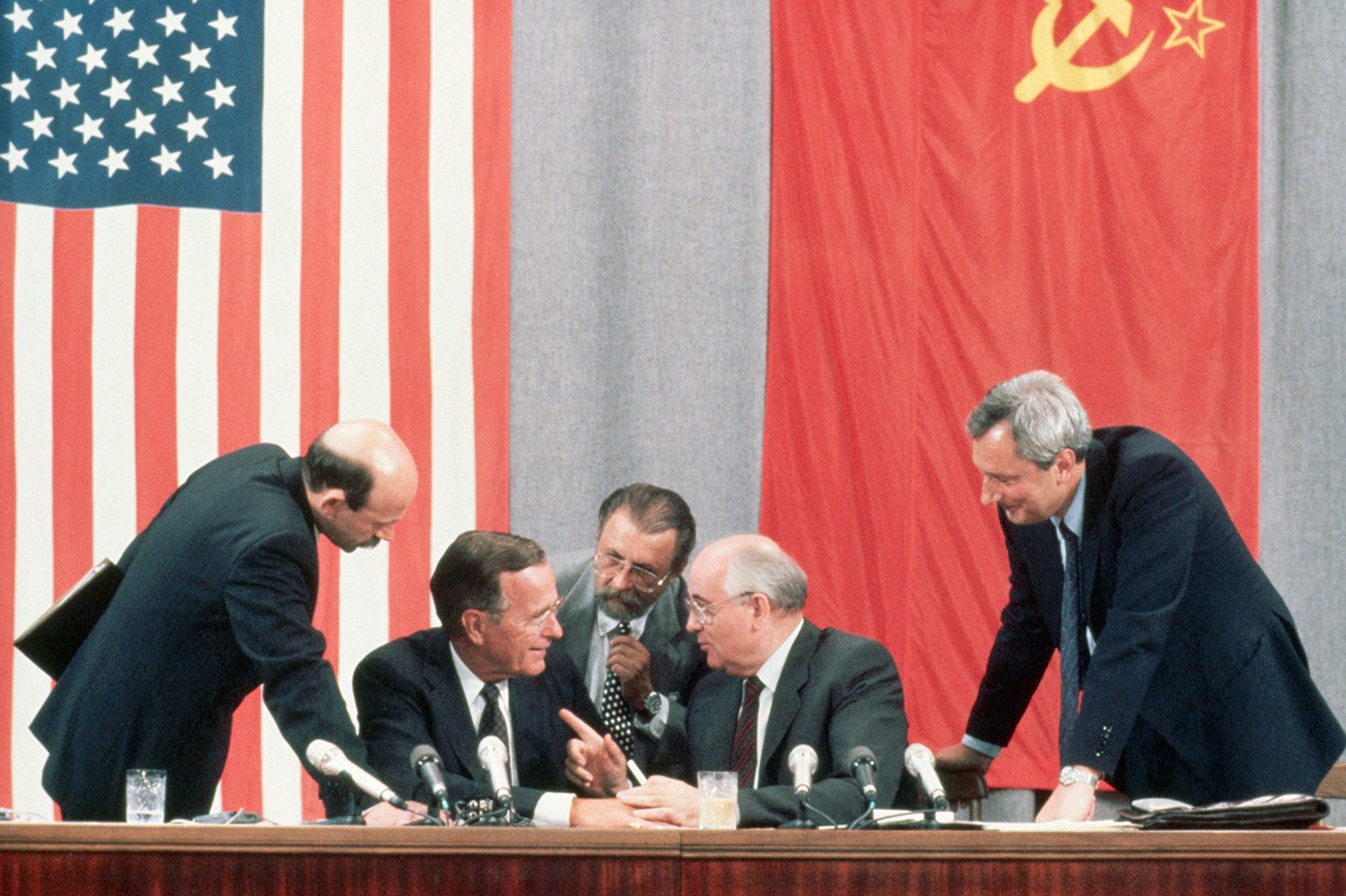
More specifically, three major factors contributed to this golden age of multilateralism.
First and most importantly, the United States was powerful enough to think in terms of absolute gains for the entire global system. It might seem like a paradox that unipolarity, not multipolarity, best supports multilateral cooperation. Yet in the context of international anarchy—where there is no global police to constrain great-power behavior—the presence of two or more such powers means that each is worried that another might achieve relatively greater gains from collaboration and strengthen its relative power position. Each great power views interdependence with other great powers as a potential source of vulnerability. Indeed, how concerns about relative gains limit cooperation is a basic proposition in the realist school.
Because great powers implement statecraft to enhance their own power position relative to other great powers in the system, their incentives for collaboration differ significantly in unipolar, bipolar, and multipolar systems.
The level of collaboration among great powers is expected to be the lowest in a bipolar power structure, where two great powers seek to minimize their interdependence. This leads to a polarized international system around two blocs, like the U.S.-Soviet rivalry during the Cold War. In that era, the multilateral system worked very well within the Western bloc, but it was certainly not global, with the Soviet Union and its allies remaining outside much of the multilateral system for large parts of the period. The People’s Republic of China, for instance, was not admitted into the United Nations until the early 1970s, and it became a member of the International Monetary Fund (IMF) and World Bank even later.
Multipolar power structures with three or more great powers may be less polarized than bipolar ones, but they are even less favorable for collaboration. With great powers mainly balancing each other through alliances with other great powers (like Europe during the 19th and early 20th centuries), there is always a risk that a power abandons an existing alliance to join another. This especially reduces the incentive to implement free trade policies, since the shared benefits of trade, including the diffusion of technology, would then accrue to the other side. In a multipolar system, great powers would trade with each other, but their governments would have a heavy hand in channeling the flow of goods, similar to the way great-power disagreements hampered the development of free trade during the multipolar period between the two world wars.
Kenneth Waltz, an American international relations scholar who was considered the father of structural realism, never wrote at length about unipolar power structures, but he made an important observation on relative versus absolute gains. He claimed that in the extreme case when a state feels very secure, a quest for absolute gains may prevail over the usual quest for relative ones. The unipolar system was such a case, with the United States secure enough to provide public goods to almost all countries in the system, which led to absolute gains for all parties involved. Above all, the United States worked hard to integrate China into the WTO and other multilateral regimes. Washington preferred the long-term benefits of multilateral solutions—including lower transaction costs and increased international stability—to more short-term, brittle solutions, such as overt coercion.
The second factor behind multilateralism’s golden age was the United States’ nature as a liberal leviathan. As much as realism can explain by focusing on raw power structures, these are not the only variables informing the extent of multilateral cooperation. Indeed, the writings of influential realist scholars like E. H. Carr (1892-1982) and Hans Morgenthau (1904-1980) show that even the pantheon of realism has room for domestic factors, such as support for law and morality. A dominant great power would most likely undermine the multilateral system if it was a dictatorship with conquest in mind, but the United States was a champion of democracy, the market economy, and free trade. The United States pursued regime change and intervened militarily in other countries on numerous occasions, but it never conquered territory. Washington’s promotion of democracy and liberal values was not always welcome in capitals around the world, and U.S. support for these values was often selective. Some have argued that liberal dreams were doomed to fail and ran counter to hard-power goals and intentions, but any such argument must consider plausible alternatives. An isolationist, authoritarian, or otherwise nationalist leviathan may have been an even larger burden on international cooperation and multilateralism.
Third, the origin of the U.S. unipolar power structure contributed significantly to the belief in multilateral solutions. During the Cold War, it was quite evident that the U.S-led Western bloc—built around multilateral institutions including NATO, the Organization for Economic Cooperation and Development, the G-7, the IMF, and the General Agreement on Tariffs and Trade (the WTO’s predecessor)—provided higher economic growth and better living standards for its citizens than the Soviet bloc, which was held together by occupation and coercion. Thus, when the United States prevailed in the Cold War rivalry, there was both domestic and international support to integrate more countries into a successful and well-functioning post-WWII multilateral system. China, for instance, was rather keen to join that system.
The current situation differs vastly on all three accounts.
-
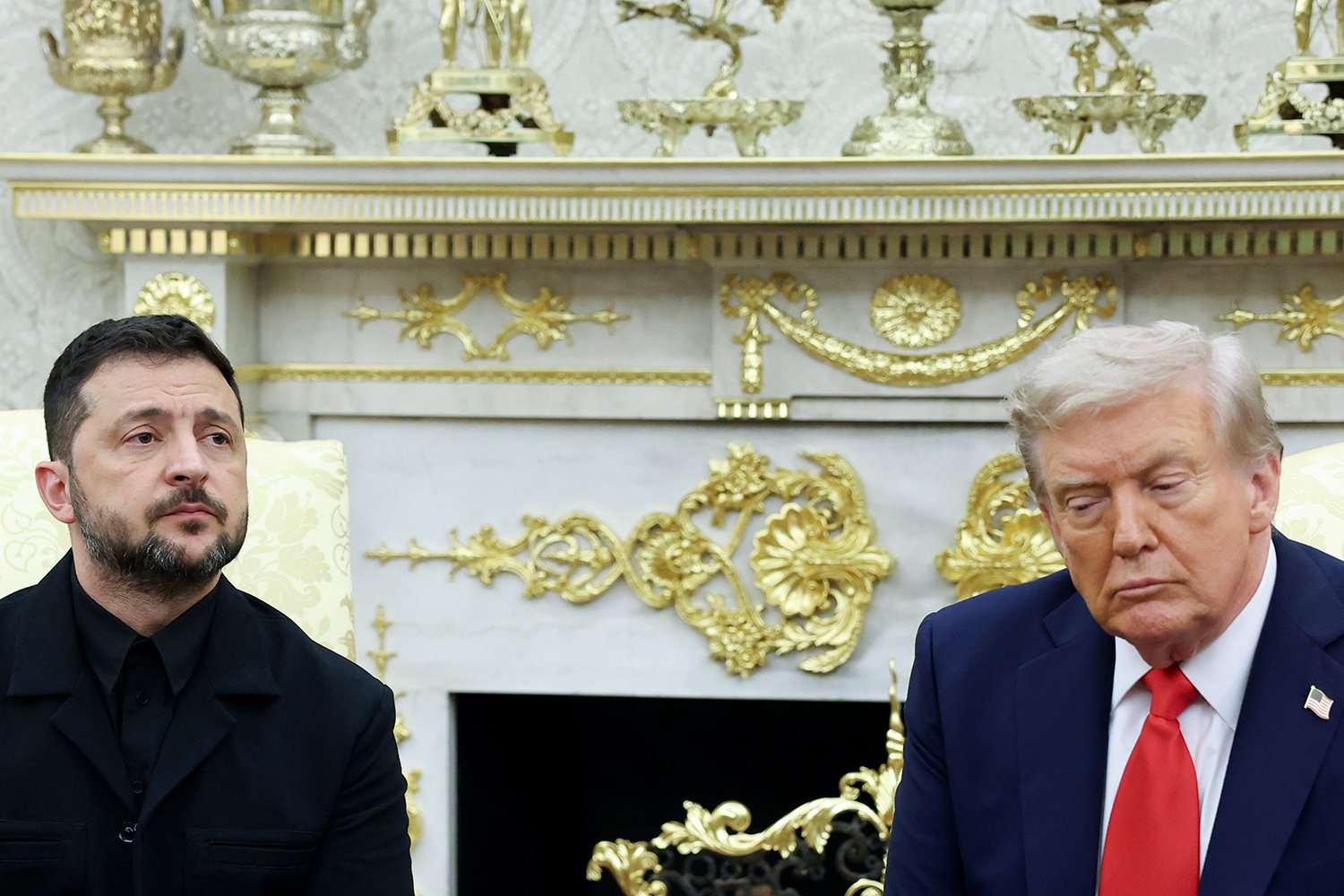
Zelensky and Trump, both seated in front of an ornate gilded mantle, frown.
-
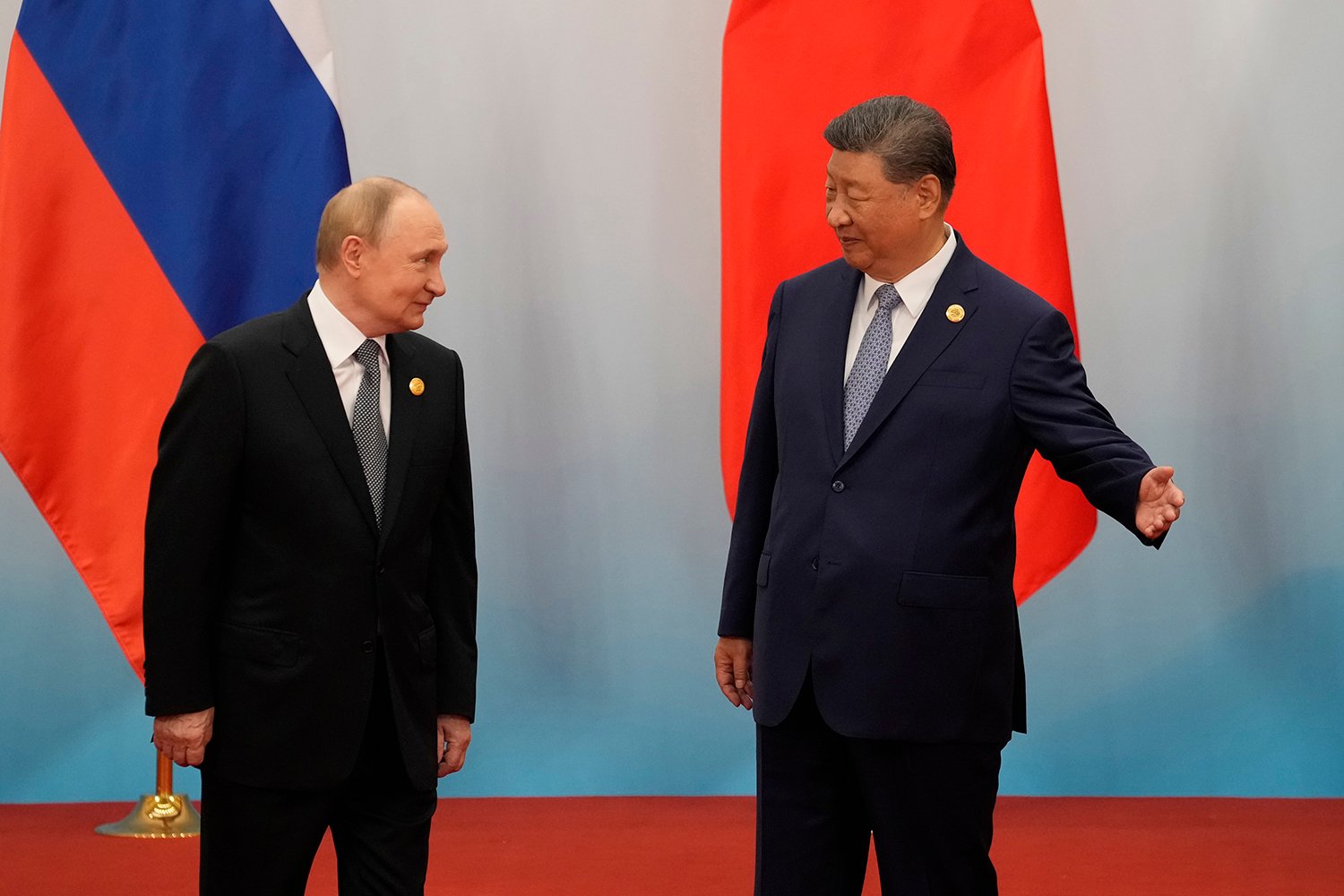
Xi Jinping gestures with his hand out as he points the way to Vladimir Putin, both in suits and standing in front of their respective countries’ flags.
Most fundamentally, the international power structure has shifted. The replacement of U.S. unipolarity with a U.S.-China bipolar system has led both Washington and Beijing to pay more attention to relative gains versus the other—to the detriment of multilateral cooperation. One important consequence is Washington’s shift from economic engagement with China to a policy of tariffs and derisking. Another is the changing geopolitical outlook. While Russia wages war in Ukraine and blocks every initiative at the U.N. related to Ukraine, the United States seems unable to decide whether to support Russia or Ukraine, and it has also created uncertainty about its NATO security commitments and is openly flirting with the idea of annexing Greenland. China is supporting Russia in order to strengthen its own position vis-à-vis the United States, whereas India continues to work with Russia in an attempt to prevent it from becoming too wedded to China.
Finally, whereas the U.S. unipolar system created a belief in multilateralism from the outset, the current shift from U.S. unipolarity to bipolarity has resulted in a less favorable mindset. Most importantly, the Trump administration believes that the multilateral system is working against the United States, but U.S. President Donald Trump’s animosity toward multilateralism is only part of a broader wave within Western countries in recent years. Brexit is another notable example of this trend, as is the growing popularity that Euroskeptic and nationalist parties across Europe are enjoying.
Even though the conclusion is very much open for debate, a narrative is taking form among many Americans and Europeans that globalization is to blame for their economic woes. Also, despite being the greatest winner of globalization during the U.S. unipolar era, China still harbors a negative view on key aspects of the multilateral system, including the human rights regime, and gives a lot of attention to alternative institutions, such as the Shanghai Cooperation Organisation, BRICS, and the Asian Infrastructure Investment Bank, that gravitate toward Beijing.
Moreover, nationalism is on the rise in the United States, Europe, China, India, and Russia. Nationalist regimes normally harbor deeper fears about the intrusiveness of global bodies than democratic governments.
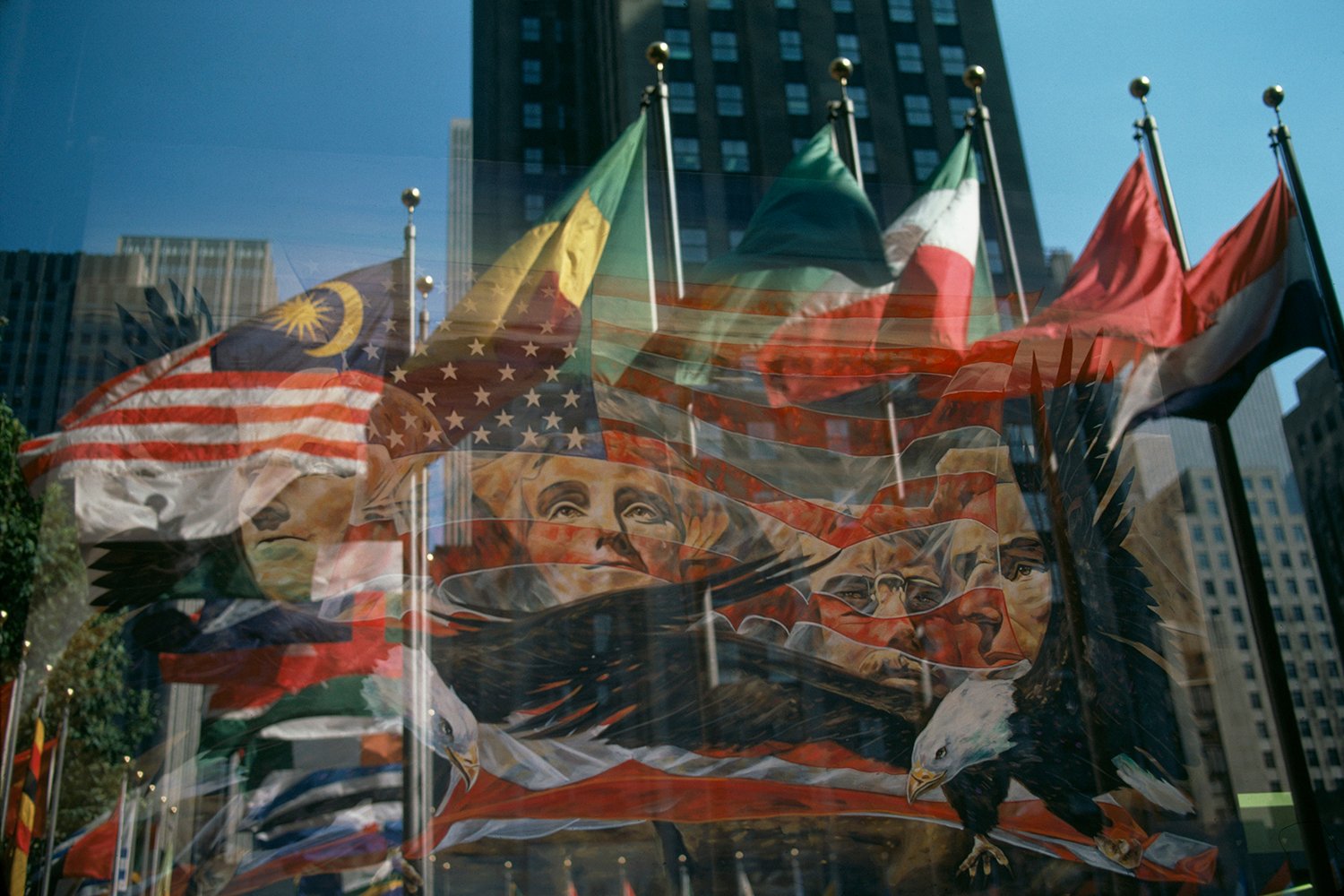
The current breakdown of the multilateral system should not come as a surprise. For years, academics and commentators have debated what a post-American world order would look like. John Ikenberry, a Princeton University international relations scholar and one of the strongest proponents of liberal internationalism, warned a decade ago that the multilateral moment was coming to an end. Today, the conditions for a strong multilateral system are even worse than when Ikenberry was writing.
There is no shortage of ideas on how to improve the multilateral system, but they mostly involve more participation from nonstate actors and a stronger voice for the global south. It is only natural that major powers like India and Brazil want a greater say in the multilateral system; indeed, it is hard to argue against a fairer and more just representation in a system that, at least in theory, is supposed to benefit everyone. Yet the international system of states simply doesn’t work in the same way as a domestic democracy. Pluralism may be a precondition for democracy, but a multipolar distribution of power does not herald a more multilateral world. Expanding the number of countries in the U.N. Security Council may enhance its legitimacy but not necessarily its influence. The national interests and actions of great powers are driven by other factors than who sits on a multilateral body.
Two final points on where we go from here: First, it is time to realize that the golden age of multilateralism is irretrievably over. Neither China nor the United States is interested in saving more than the parts that work for their own countries. Neither a multilateralism-friendly Europe, nor a more cooperative post-Trump America, nor a more multipolar world with a greater voice for the global south will be able to resuscitate it.
Second, an inferior and deficient multilateral system is still worth fighting for—simply because the alternative is even worse. But the future multilateral system is likely to be a more fragmented one, where small groups of like-minded countries—so-called minilaterals—join to solve specific problems. These groups will sometimes be driven by shared values but more often by common challenges—of which there is certainly no lack in the world today.
The post The Golden Age of Multilateralism Is Over appeared first on Foreign Policy.
